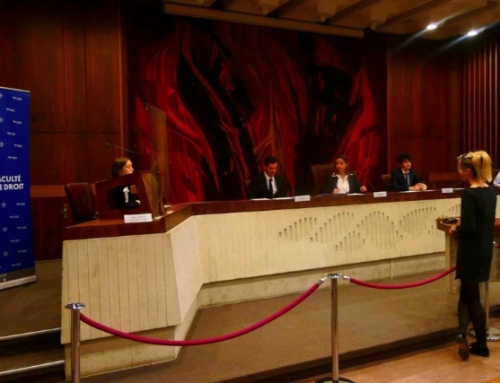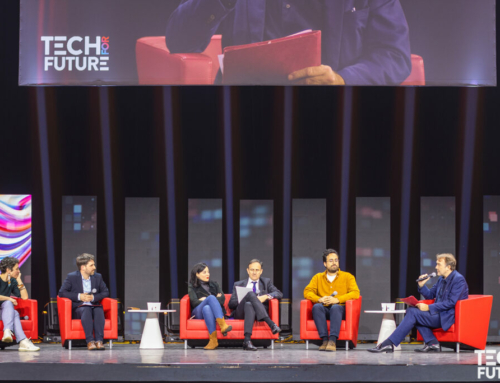The health crisis in the spring prompted universities to take urgent steps to ensure pedagogical continuity, so that students could continue their learning. While in many cases the year continued under the best possible conditions, it is interesting to reflect on the consequences that this sudden shift towards all-digital technology may have on the future of higher education.
An American study carried out in April 2020¹ illustrates the general idea: everything seemed to be ready, and the vast majority of the various players had developed a sufficient culture of digital tools to cope well with this move to distance. Thus, 83% of American university presidents felt that students were well prepared for the new uses, while 74% felt the same was true of their administrations and teaching staff. This supports the trend towards high satisfaction with the introduction of distance learning tools, with 86% of American university presidents believing that everything went very well.
In France, preparation for e-learning varies from one institution to another, and from one teacher to another. Although e-learning platforms have been in use for some time in most universities, their use depends on the teacher’s willingness to use them more or less systematically.
That’s why many universities have been quick to roll out tutorials and webinars for teachers who are less at ease using digital tools. This is the case, for example, at the University of Lille, which set up a dedicated platform² during the first weeks of the lockdown, making life easier for its 3,500 teachers. At the University of Lorraine, dozens of webinars were held on March 17, attended by over 600 teachers.
Interview with Brigitte Nominé, Vice-President of Digital Strategy at the Université de Lorraine, conducted on May 27, 2020.
Néanmoins, si l’on en croit la vice-présidente de la CPU, Christine Ganglof-Ziegler³, le distanciel à 100% n’est pas un objectif pour l’université française : « je tiens à ce que l’université reste un lieu de rencontres entre étudiants, équipes pédagogiques et chercheurs » précise-t-elle à Léa Taieb dans un article des Echos Start du 11 juin 2020.
Nevertheless, if CPU vice-president Christine Ganglof-Ziegler³ is to be believed, 100% distance learning is not an objective for French universities: “I want universities to remain places where students, teaching staff and researchers can meet”, she tells Léa Taieb in an article in Les Echos Start on June 11, 2020.
Nevertheless, a number of digital tools have been used on a massive scale throughout the country, and it’s not beyond the bounds of possibility that some have taken a liking to them. In fact, the universities themselves are setting up think tanks to advance the digital transformation of the system. Such is the case of the Maison des Sciences Numériques created by Sorbonne Paris Nord University. Younès Bennani, its vice-president for “Digital Transformation”, describes the MSN as “a third-party innovation center whose mission is to develop an interdisciplinary vision of the digital world in a mixed space of cross-fertilization between students, researchers and companies organized in project teams. [During the crisis], MSN activated its dedicated “pedagogy and digital” team to offer training modules for teachers and help them transform their teaching from face-to-face to distance learning”. Nevertheless, for Younès Bennani, it’s important to understand that “tomorrow’s university will be interactive, collaborative and à la carte, but it won’t be 100% online”.
“Tomorrow’s university will be interactive, collaborative and à la carte, but it won’t be 100% online”, says Younès Bennani, VP Digital Transformation at Sorbonne Paris-Nord University.
The agility of teachers and those responsible for digital technology has enabled almost everyone to continue their learning paths and ensure the transmission of knowledge under the right conditions. But there are undoubtedly many lessons to be learned from this particular period, particularly in terms of support for the various players involved. How best to support students throughout their learning journey seems to be the new pedagogical mission, if we are to believe the feedback presented by Thierry Spriet, digital vice-president at the University of Avignon, for #Univ4Good: “It’s important to review the learning continuum, which includes a part in front of a teacher and a part alone. The division can be made with synchronous and asynchronous modes, but the teacher’s role in support must be optimized, since knowledge is now available on the Internet. But just because knowledge is available doesn’t mean it can be easily retrieved and, above all, acquired by a student. It’s up to the teacher to decide which methods to use to ensure optimal acquisition.”
Interview with Thierry Spriet, Vice President for Digital and Pedagogical Innovation
of the Université d’Avignon, conducted on June 10, 2020
In this context, it is conceivable that modularity of courses and a certain flexibility in their acquisition will be the norm in the future of the university. Like the omni-channel access to goods for consumers, students would thus have differentiated entry points and interactions with courses and programs, and would themselves become more agile and mobile throughout their course.
Although we haven’t quite reached that point yet, the start of the academic year is already being marked by hybridization at many universities. The challenge today is essentially to reduce the number of people physically present on campus, while maintaining the integrity of teaching for students.
The debate on the flexibility and hybridization of educational pathways is not new, but it is now more than ever at the heart of the debate on the future of higher education!
Note : The full version of this article is published on the ExLibris Campus M website.
¹ Survey of 192 public and private university presidents conducted by the American Council on Education in April 2020.
² https://infotuto.univ-lille.fr/
³ Since appointed Rectrice of the Academic Region of Guadeloupe
Find out how far universities have progressed in their digital transformation in 2021 in our dedicated article!






